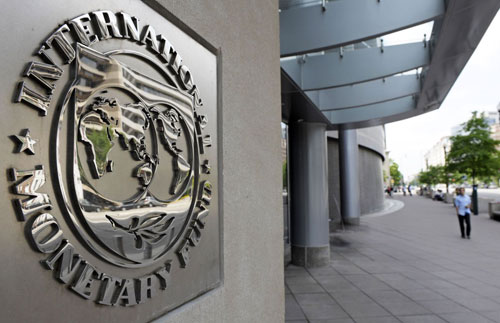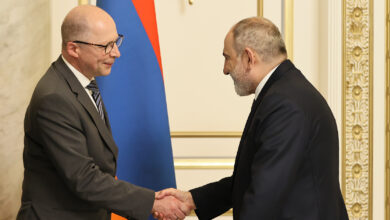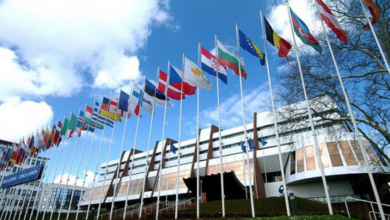IMF Executive Board concludes 2017 Article IV consultation for the Republic of Armenia

On June 23, 2017, the Executive Board of the International Monetary Fund (IMF) concluded the Article IV consultation with the Republic of Armenia.
Since its independence, Armenia has made significant strides in enhancing macroeconomic stability. Growth has been satisfactory with inflation under control, the fiscal situation broadly well managed, and foreign exchange reserves enhanced. Since late 2014, the significant decline in remittances and the price of copper, Armenia’s main export, have weighed heavily on growth, and adversely impacted the fiscal position. In 2016, GDP growth was only 0.2 percent, deflationary pressures persisted, and the fiscal deficit rose to 5.6 percent of GDP, while the current account deficit remained below 3 percent of GDP. Economic activity in 2017 has shown signs of recovery, accompanied by a pickup in inflation and private sector credit growth, supported by monetary policy easing, according to IMF.
With improving outlook in major trading partners and a pickup in private sector activity, real GDP is projected to grow by around 3 percent in 2017, while inflation would reach around 2 percent by end-2017. Medium-term growth is projected at 3.5-4 percent, with potential growth now estimated by staff to be 1 percentage point lower than in the pre-crisis period. Nevertheless, there are risks: the recent recovery in remittances and copper prices may not endure, and growth in key trading partners could be weaker than expected.
Looking ahead, Armenia continues to face significant challenges. Dependence on remittances leaves the economy vulnerable to external shocks, while a shrinking labor force associated with emigration makes it difficult to generate broad-based prosperity. The authorities’ efforts to promote inclusive growth and increase resilience have focused on strengthening competition and governance, diversifying exports, and new initiatives to attract foreign direct investment (FDI). On the fiscal front, inadequate revenue base has limited the potential for much needed growth-enhancing investment and contributed to the increase in public debt. Against this background, the government is strengthening revenue mobilization through the introduction of a new tax code and renewed efforts to improve tax administration.
Executive Board Assessment
Executive Directors agreed with the thrust of the staff appraisal. They commended the Armenian authorities for their sustained efforts to enhance macroeconomic stability and satisfactory program implementation despite significant external challenges. Directors noted that the economy is expected to gradually recover in 2017, but significant risks and challenges remain, including those from a narrow growth base and a sharp increase in public debt. They called for continued commitment to sound policies and structural reforms to ensure macroeconomic stability, and foster sustainable inclusive growth.
Directors agreed that the previously planned large cut in foreign-financed capital spending to meet the budgeted fiscal deficit target, dictated by the fiscal rule, may not be prudent, given the fragile growth, the cyclical position, and the need to build productive capacity. In this context, and considering the higher projected revenues for 2017, they supported the authorities’ plan to increase capital expenditure by 1 percent of GDP relative to the 2017 budget. Directors stressed that additional spending should be accompanied by intensified structural reforms to ensure sustainable growth.
Directors underscored the importance of maintaining a prudent medium-term fiscal path. To this end, they called for enhancing revenue mobilization and spending efficiency. Directors underscored that the new Tax Code should be rigorously implemented and that political pressures to dilute its provisions should be resisted. They commended the authorities’ efforts to improve tax administration, which have contributed to the higher-than-projected revenue collection so far.
Directors agreed that the medium-term fiscal framework needs to be modernized, noting that the current fiscal rule lacks flexibility and consideration for cyclical conditions. They supported the authorities’ intention to amend the rule, with IMF technical assistance, to help improve credibility and preserve debt sustainability. A few Directors, however, cautioned against the potential loss of credibility if the rule is breached.
Directors welcomed the Central Bank of Armenia’s (CBA’s) policy of monetary easing, which has helped reduce market interest rates and supported recovery in the private sector credit. They underscored that monetary policy should remain focused on bringing inflation back to its medium-term target. Directors stressed that the CBA should monitor the impact of recent policy actions and assess the need for further easing. They emphasized the importance of continued exchange rate flexibility in responding to external shocks and maintaining competitiveness.
Directors called for further strengthening the monetary and financial sector policy framework. To increase the effectiveness of the inflation targeting framework and monetary transmission mechanism, they stressed the need to develop a well-functioning interbank market, enhance communication, and promote de-dollarization. Directors supported policy measures to build a more resilient financial sector and strengthen the macroprudential framework. They welcomed the smooth transition of the banking sector to comply with the new minimum capital requirement. Directors encouraged the authorities to continue to foster better financial intermediation by developing capital markets and strengthening financial literacy.
Directors called for continued efforts to advance structural reforms to foster sustainable and inclusive growth. They underscored the need to promote private sector development and diversify the economy by attracting FDI. In this context, they welcomed the authorities’ growth-promoting initiatives to improve the business environment, encourage competition, and strengthen governance.
It is expected that the next Article IV consultation with the Republic of Armenia will be held on the standard 12-month cycle.








